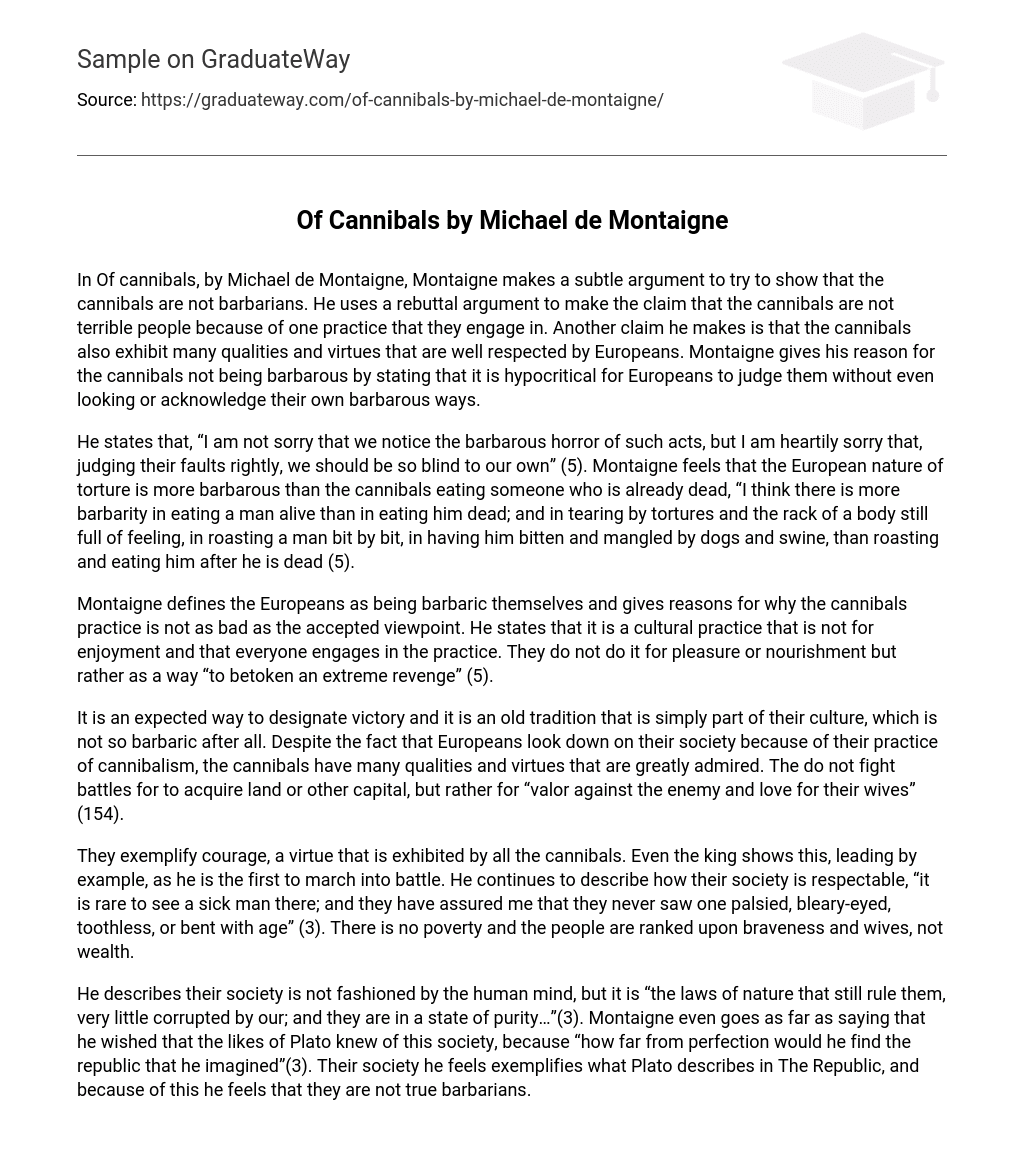In “Of Cannibals” by Michel de Montaigne, the author presents an nuanced argument aiming to challenge the belief that cannibals are savage beings. Montaigne contradicts this notion by emphasizing a particular practice of the cannibals. Additionally, he highlights the numerous virtues and qualities exhibited by the cannibals that earn respect from Europeans. Montaigne supports his assertion of the cannibals not being barbaric by pointing out the hypocrisy of Europeans who judge them without acknowledging their own barbarous behaviors.
Montaigne expresses his regret for our lack of awareness towards our own faults while we harshly criticize the barbarity of certain acts. He specifically points out that the European practice of torture is even more savage than cannibals eating someone who is already deceased. According to Montaigne, the brutality lies in consuming a person while they are still alive and inflicting torturous pain upon a living body, such as tearing it apart with the rack or roasting it gradually. This is in contrast to roasting and consuming a person after their death.
In Montaigne’s perspective, Europeans perceive themselves as barbaric. He contends that the widely condemned act of cannibalism is not as terrible as commonly believed. Montaigne asserts that cannibalism is a cultural custom devoid of pleasure and involves participation from all. Its purpose lies not in enjoyment or sustenance, but rather in representing an extreme form of revenge (5).
It is a customary method of celebrating success and it is an ancient custom that is ingrained in their culture, which is not as savage as Europeans perceive. Although Europeans criticize their society due to their cannibalistic practices, the cannibals possess numerous admirable qualities and virtues. They do not engage in wars for territorial expansion or material gain, but rather for “bravery against their foes and devotion to their spouses” (154).
They showcase bravery, a quality demonstrated by all the cannibals, including the king who leads by example by being the first to engage in combat. The king further explains the admirable nature of their society, stating that illness is infrequent among them, and they claim to have never encountered individuals suffering from paralysis, poor eyesight, tooth loss, or physical frailty due to old age. Additionally, there is no poverty within their community, with individuals being esteemed based on their courage and marital status, not their wealth.
According to Montaigne, the society he describes is not a result of human creation, but rather it is governed by the laws of nature. He emphasizes that their society remains mostly untainted by external influences and is in a state of purity. Montaigne even suggests that if individuals like Plato were aware of this society, they would realize how imperfect their envisioned republics are in comparison. Therefore, he believes that the society he is discussing does not deserve to be labeled as barbaric because it embodies the ideals described in Plato’s The Republic.





